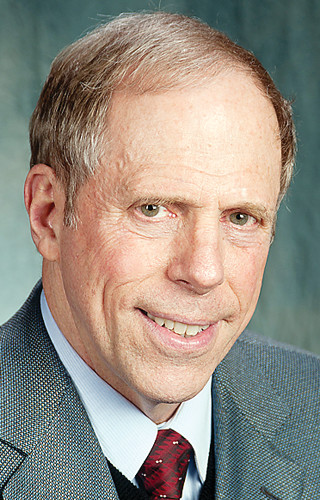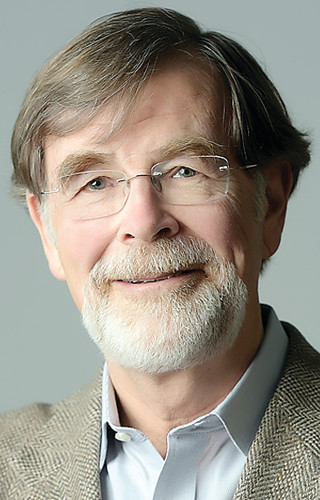Support the Timberjay by making a donation.
A sobering assessment of the world
TOWER— About 50 Tower and Ely area residents heard a sobering assessment of the state of the world and America’s role in it during a presentation last Thursday night by two foreign policy …
This item is available in full to subscribers.
Attention subscribers
To continue reading, you will need to either log in to your subscriber account, or purchase a new subscription.
If you are a current print subscriber, you can set up a free website account and connect your subscription to it by clicking here.
If you are a digital subscriber with an active, online-only subscription then you already have an account here. Just reset your password if you've not yet logged in to your account on this new site.
Otherwise, click here to view your options for subscribing.
Please log in to continue |
A sobering assessment of the world
TOWER— About 50 Tower and Ely area residents heard a sobering assessment of the state of the world and America’s role in it during a presentation last Thursday night by two foreign policy experts, Tom Hanson and Tom Weiss. It was the first of what is expected to be a regular series of foreign policy discussions in the area as part of the Great Decisions program, the country’s largest foreign policy citizen engagement program. Tower Vision 2025 sponsored last week’s event.
Hanson is a longtime Foreign Service officer with the U.S. State Department, and Weiss is a current professor and Andrew Carnegie fellow at City University of New York, who is a leading expert on the United Nations and humanitarian intervention.
“We’re moving into a new phase in global politics,” said Hanson, who now serves as Diplomat-in-Residence at the University of Minnesota-Duluth’s Alworth Institute for International Studies. According to Hanson, the global system, known as the Washington Consensus, which was created in the wake of the collapse of the Soviet Union, is in the process of being rejected around the world. He said that’s being seen in a number of developments, including the rise of a number of regional powers, like China, Russia, and Iran, but also in the rejection by growing numbers of people of the system of globalized trade that is a central foundation of the Washington Consensus.
He said political events such as the rise of Donald Trump in the U.S. and the Brexit vote in Great Britain, are both symptoms of this trend and are a recognition by many people around the world that the benefits of trade have not always been widely shared. “The Brexit vote reflected that working and middle class people feel the system isn’t working for them. Among my students, I hear this too. It was part of Bernie Sanders’ appeal,” said Hanson. Around the world, he said, “there’s a desire to give a jolt to the existing system.”
It’s all coming at a time, said Hanson, when the challenges facing the world— from population growth, limited job opportunities, particularly for the young, climate change and other environmental limits— are going to require increasing creativity from world leaders and a greater willingness to work together.
China ascendant
The rise of China is also posing significant challenges to the former global dominance of the U.S., and Hanson said it remains to be seen whether the two countries can avoid the clash predicted by the Greek philosopher Thucydides, who argued that the fear of rising powers most often leads to a violent clash between the upstart and the existing status quo power, in this case the United States. “How alarmed are we by the rise of China?” asked Hanson. “That is a key question.”
While China’s rise, to date, has been largely peaceful, he said there are potential trigger points, such as China’s efforts to extend their military installations onto artificial islands in the South China Sea. “This is extremely dangerous. We have to hope that the next president knows how to handle this to avoid a confrontation.”
Hanson said President Obama’s pivot towards a greater focus on Asia has been a key element of Obama’s foreign policy, and he expects that would continue under a President Clinton. Yet Obama’s pivot has been made more difficult, he said, by the continuing trouble in the Middle East. “The president expresses extreme frustration to be bogged down in the Middle East, which he sees as a dysfunctional region,” said Hanson. “He really believes the U.S. should be focused in East and Central Asia.”
Part of that focus is reflected in the Trans- Pacific Partnership trade deal, said Hanson, which was a reaction to an earlier attempt by Japan and China to create an Asian trading block that left out the U.S. That raised alarm bells in Washington, according to Hanson, and prompted the push for TPP, which leaves China out of the trading bloc. He said the TPP is much more of a political response to China than a necessary trade deal. “It’s not a particularly rational agreement economically,” he said.
At the same time, Hanson said the U.S. is worried about China as much for the potential impact of its current economic troubles as for its growing political or military influence. Hanson said China’s growth went well beyond its actual capacity, and that’s created significant instability in the country. “The Chinese debt is nearing 300 percent of their GDP,” said Hanson. “They will not have a soft landing,” he added, noting that President Obama has said that the biggest threat from China today is from its economic collapse and the fallout for the world economy. The country’s current economic problems have already prompted the sharp decline in many commodity prices, including iron and steel, oil, and copper.
Russian relations
Hanson, whose diplomatic career included a posting in the Soviet Union, said he believes the U.S. decision to expand NATO following the collapse of the Soviet state played a role in the breakdown of U.S.-Russia relations. He said President Bill Clinton pushed NATO expansion, which Russia began to see as an increasing threat as the alliance moved closer to its borders. Hanson said Clinton’s decision to expand NATO in 1994 started as a political push to win over Polish voters in some key states ahead of what he expected would be a difficult re-election bid.
He said Europe, particularly Germany, is split over how best to approach the Russians and whether Russia’s actions in Crimea and Ukraine require a more aggressive response.
Hanson noted that Hillary Clinton has taken a harder line towards Russia than Donald Trump. “We get bizarre signals from Trump,” he said. “There’s just no way to know if he has a coherent foreign policy view.”
At the same time, Hanson said relations with Russia and other regional actors have prompted a little-heralded military arms race by the Obama administration, which is in the midst of a trillion dollar nuclear weapons upgrade. The administration is also advancing extremely powerful conventional weapons under an initiative known as Prompt Global Strike, some of which could strike against hardened nuclear facilities and hit anywhere on Earth in less than an hour. While some of these weapons are ground-based, he said some may be deployed in space, which is one reason that the Chinese are actively developing space-based anti-ballistic technology as a counter to the U.S. weapons.
Hanson said some U.S. organizations, such as the MacArthur Foundation, are increasingly worried about the destabilizing impact of such weapons.
Sustainability
Hanson said the challenges posed by population growth, lack of sustainable employment, and climate change are likely to be among the most intractable problems facing the world in the 21st century, and he said they will require more, not less, coordination and cooperation going forward. Despite the Paris Climate Agreement, signed last December, he said the world may well be on track for warming of as much as four degrees Celsius, which most climate researchers believe would have devastating consequences for the planet. “It’s going to be an uphill battle,” he said.
Hanson said the refugee problem is likely to increase as climate change makes some heavily-populated parts of the world uninhabitable in the near future. “The southern third of Bangladesh is nearly underwater,” said, noting that rising sea levels will only increase the problem. While the focus is often on Syrian outflow, he said most of the refugees pouring into Europe are coming from Africa, and that the impacts of climate change and other environmental stresses are exacerbating the problem. And he cited population growth projections that suggest Africa’s population will only continue to explode, reaching 40 percent of the world’s total human population by 2100, suggesting a worsening refugee problem as time goes on.
At the same time, world leaders fear that the global economy won’t be able to keep pace with the need for jobs by a burgeoning population, creating a dangerous situation as millions of young adults will be unable to find meaningful work. At the same time, he said more and more jobs will be replaced by mechanization as the sophistication of robots increases. He said a new book, called “The Rise of Robots,” by Martin Ford, has become highly influential with world leaders.
With so many challenges facing the world, Tom Weiss said it’s important for citizens to have some understanding of the complex issues. That’s the primary objective of the Great Decisions program, according to Weiss, who serves on the editorial board of the national organization. Ely already has a Great Decisions chapter and representatives of the group urged organizers in Tower to work with them to coordinate activities in the future.









